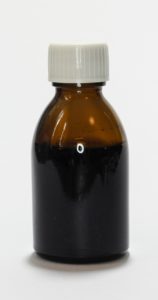 One of the symptoms associated with idiopathic pulmonary fibrosis is a chronic cough. Certain respiratory diseases often cause a moist or wet cough that produces sputum. But people with IPF tend to have a dry cough.
One of the symptoms associated with idiopathic pulmonary fibrosis is a chronic cough. Certain respiratory diseases often cause a moist or wet cough that produces sputum. But people with IPF tend to have a dry cough.
The exact cause of coughing in people with idiopathic pulmonary fibrosis is not entirely understood. But it is believed the coughing is due to the scarring of the lungs. One theory is the fibrotic process in the lungs may cause the airways to have increased sensitivity to cough inducing substances.
A chronic cough can range from a nuisance to significant enough to interfere with daily activities, such as sleeping, eating and talking. It can also lead to fatigue and shortness of breath. The good news is there may be things you can do to decrease coughing.
How to Manage Coughing in Pulmonary Fibrosis
Persistent coughing can be difficult to deal with. In some cases, coughing can be so frequent; it decreases your quality of life. Managing your cough starts by talking with your doctor and considering the following:
Rule out other causes: Coughing is often a symptom of idiopathic pulmonary fibrosis. But coughing may also be caused by more than one condition. For example, postnasal drip, allergies and gastroesophageal reflux disease (GERD) can all lead to coughing.
Determining if coughing may also be attributed to something in addition to IPF may be helpful. For example, if you also have GERD, treating that condition may reduce coughing. Let your doctor know the frequency of your cough, whether it is dry or productive and if anything appears to trigger your cough.
Identify Triggers That Lead to Cough: Many patients with IPF can identify triggers that lead to increased coughing. These triggers might include exercising, exposure to certain types of weather such as humidity or heat, talking or irritants in the air such as smoke or perfumes. Keep track of when your cough is worse and note what triggers you might have been exposed to. When possible avoid future exposures.
Discuss medication options with your doctor: Medications may be used to treat coughing in people who have pulmonary fibrosis. Medication options may include:
- Prednisone: Prednisone is a steroid that decreases inflammation. It may help reduce coughing in people with IPF. Prednisone may have side effects, such as weight gain, sleep disturbances and restlessness.
- Nebulized lidocaine: Lidocaine is a numbing medication. When administrated through a nebulizer, some studies have shown it may decrease coughing. Most people tolerate nebulized lidocaine well. Side effects may include bitter taste and numbness in the mouth.
- Benzonatate: Benzonatate may be effective in decreasing cough in patients with pulmonary fibrosis. It is a nonnarcotic cough suppressant. Side effects may include drowsiness, dizziness and upset stomach.
- Guaifenesin: Guaifenesin is considered an expectorant and is sometimes effective in decreasing cough in people with IPF. It is available over the counter and in prescription strength. Side effects may include upset stomach and dizziness.
- Thalidomide: Some research studies indicate thalidomide might decrease coughing in people with IPF. But thalidomide can be toxic and cause a variety of side effects including peripheral neuropathy, dizziness and fatigue. It may also cause birth defects in pregnant women and any contact with the medication should be avoided. Because of the possible toxic side effects, thalidomide should be used with caution.
Additional treatments may be prescribed or recommended based on individual symptoms, tolerance of side effects and severity of coughing. Unfortunately, there is no one treatment for coughing in IPF that is considered most effective. Finding the right medication to treat coughing may involve a little trial and error. In many cases, patients may need to try different treatments to determine what works best.
Content written by Dr. Jeremy Feldman, an expert in Idiopathic Pulmonary Fibrosis, with contributions by MaryAnn DePietro, B.S. CRT, a licensed respiratory therapist.